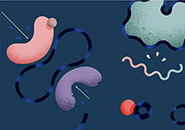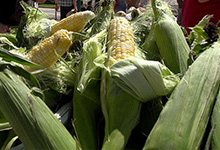
Scientific Discipline
Biochemistry, Genetics, Plant Biology
Host Institution
University of Wisconsin-Madison
Current Position
Richard Amasino is Distinguished Professor of Biochemistry at the University of Wisconsin-Madison.
Current Research
Plants in the Classroom: A Model to Teach Genetics
Research
Biography
Richard Amasino has been growing plants ever since his mother let him plant his first seeds. His research addresses the mystery of how a plant knows that it has been through a complete winter and that it is now safe to flower in response to the lengthening days of spring.
Amasino's lab discovered the molecular epigenetic switch that prevents a plant from flowering until it has experienced a long period of cold weather. As an HHMI professor, he is using plant genetics to involve undergraduates in original experiments and to develop appealing, accessible genetics-based teaching units for K-12 science. Plants are ideal organisms for classroom studies, Amasino says. They are cheap and easy to grow. In fact, FastPlants, fast-flowering cabbages developed by Amasino's University of Wisconsin colleague Paul Williams, are so well suited for plant biology lessons, they are already used by as many as 10 million students and 70,000 teachers annually. For his HHMI project, Amasino is expanding the successful FastPlants teaching tool into a practical genetic model for more extensive classroom use and student research.
Amasino has used teams of undergraduates join members of his lab to create a collection of FastPlants mutants, and they are developing hands-on classroom activities using FastPlants, designed to show K-12 students how genes pass from one generation to the next and how genetics can be used to study developmental and biochemical processes.
Amasino is also engaged in other educational activites. In addition to introducing active learning into his department’s general biochemistry course for science majors, he has taught science courses for undergraduates who are not science majors. He is director of education and outreach for the Department of Energy-sponsored Great Lakes Bioenergy Research Center, and in this capacity focuses on bringing an understanding of energy issues into the K-12 curriculum. He is also the principal investigator of a USDA National Institute of Food and Agriculture project to enhance science education in First Nation schools.
Research Papers
Selected Research Papers



